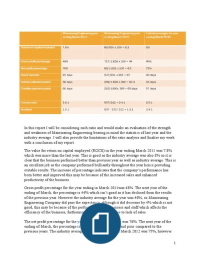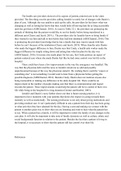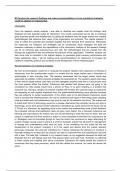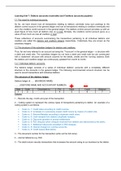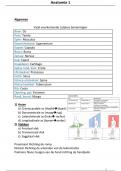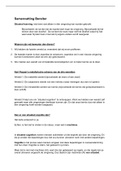Michelle van Diën – 413154md
PROBLEM 6 – Judging one's own performance: how accurate are you?
Dunlosky, J. & Thiede, K. W. (2013). Metamemory. In D. Reisberg (Ed.), The Oxford Handbook of
Cognitive Psychology (pp. 283-298). Oxford university Press
Metamemory: people's thoughts about their memory and how memory operates. People rely on
their metamemory as they perform many activities.
Multifaceted nature of metamemory, incl.:
● Metamemory knowledge: declarative knowledge or beliefs that an individual holds about how
memory operates and whether those beliefs are accurate.
● Memory monitoring: assessing progress during learning or the current state of a previously studied
item.
● Memory control: regulating any aspect of learning or retrieval.
Faulty metamemory can lead to poor memory and low achievement; accurate metamemory
can enhance memory and achievement.
1970: John Flavell coined the term "metamemory.”
Joseph Hart provided the first method to assess metamemory in an objective manner.
Feeling-of-knowing (FOK) judgments: When participants did not answer a general-information
question, they were asked to predict whether they could choose the correct answer on a multiple-
choice recognition test. Hart evaluated their accuracy against objective performance by
administering recognition tests.
1990: Nelson and Narens organized the various monitoring and control processes into a
single framework. Figure illustrates measures of memory monitoring and memory control that
correspond to each phase of learning.
Judgments of learning (JOLs): people judge how well an item has been learned.
Figure Overview of metamemory monitoring and control components that occur throughout study (acquisition), retention, and retrieval
Judgments of learning (JOLs): Judgments of the likelihood of remembering recently studied items on
an upcoming test.
Feeling-of-knowing (FOK) judgments: Judgments of the likelihood of recognizing currently
unrecallable answers on an upcoming test.
Theory and Data of Basic Monitoring and Control Processes
Focus on two questions:
1. How do people make metamemory judgments during study and retrieval?
2. How do people control their study and retrieval?
PROBLEM 6 – Judging one's own performance: how accurate are you?
Dunlosky, J. & Thiede, K. W. (2013). Metamemory. In D. Reisberg (Ed.), The Oxford Handbook of
Cognitive Psychology (pp. 283-298). Oxford university Press
Metamemory: people's thoughts about their memory and how memory operates. People rely on
their metamemory as they perform many activities.
Multifaceted nature of metamemory, incl.:
● Metamemory knowledge: declarative knowledge or beliefs that an individual holds about how
memory operates and whether those beliefs are accurate.
● Memory monitoring: assessing progress during learning or the current state of a previously studied
item.
● Memory control: regulating any aspect of learning or retrieval.
Faulty metamemory can lead to poor memory and low achievement; accurate metamemory
can enhance memory and achievement.
1970: John Flavell coined the term "metamemory.”
Joseph Hart provided the first method to assess metamemory in an objective manner.
Feeling-of-knowing (FOK) judgments: When participants did not answer a general-information
question, they were asked to predict whether they could choose the correct answer on a multiple-
choice recognition test. Hart evaluated their accuracy against objective performance by
administering recognition tests.
1990: Nelson and Narens organized the various monitoring and control processes into a
single framework. Figure illustrates measures of memory monitoring and memory control that
correspond to each phase of learning.
Judgments of learning (JOLs): people judge how well an item has been learned.
Figure Overview of metamemory monitoring and control components that occur throughout study (acquisition), retention, and retrieval
Judgments of learning (JOLs): Judgments of the likelihood of remembering recently studied items on
an upcoming test.
Feeling-of-knowing (FOK) judgments: Judgments of the likelihood of recognizing currently
unrecallable answers on an upcoming test.
Theory and Data of Basic Monitoring and Control Processes
Focus on two questions:
1. How do people make metamemory judgments during study and retrieval?
2. How do people control their study and retrieval?


